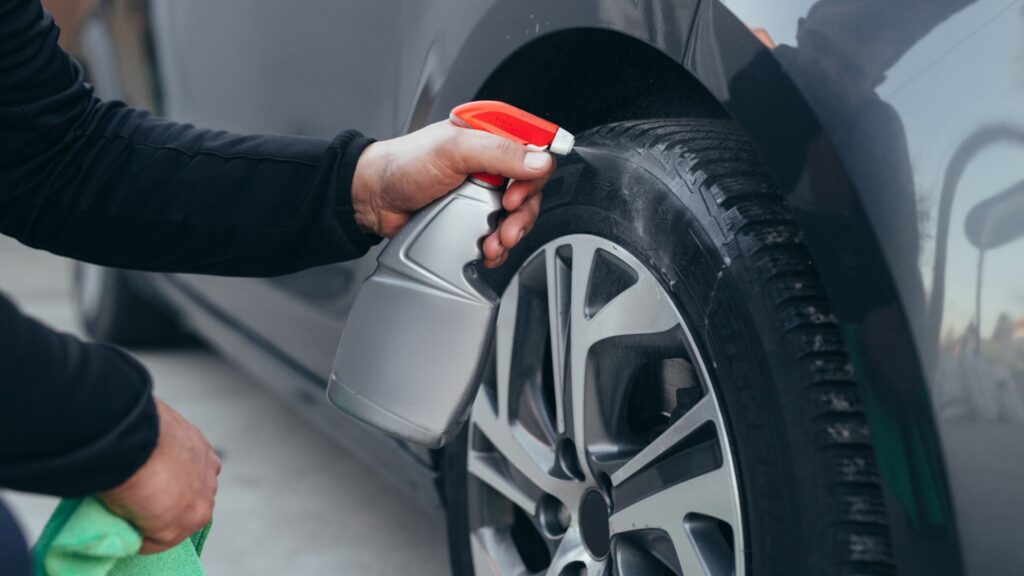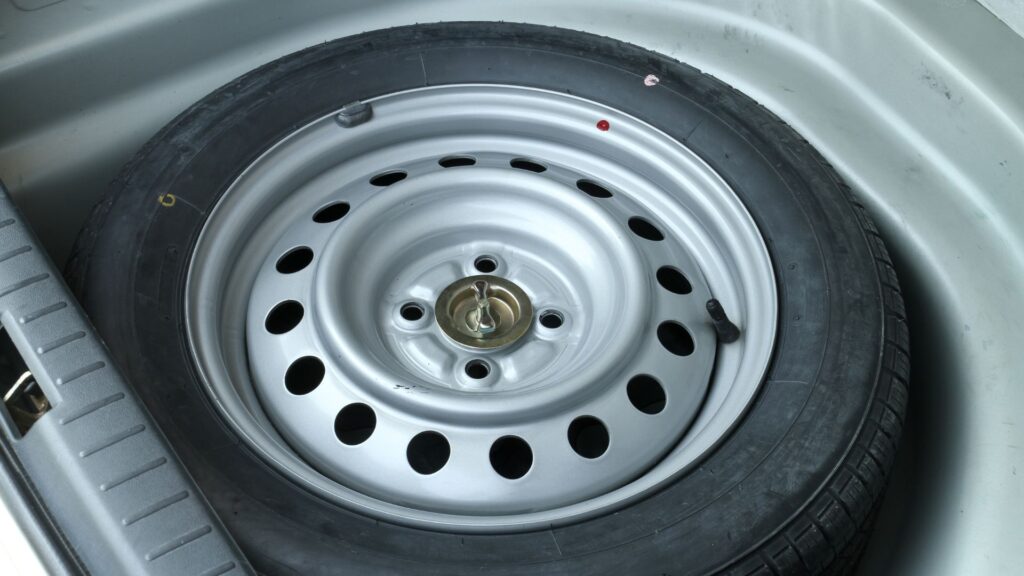

How to Maintain your Car Wheels
Proper maintenance of your car wheels is essential for their longevity and overall performance. Regular care and attention can help extend their lifespan, improve fuel efficiency, and ensure a smooth and safe driving experience. Here are some essential tips to help you maintain the longevity of your car wheels and make them last longer:
Inspect and Maintain Tire Pressure

Maintaining the correct tire pressure is essential for both safety and wheel longevity. Use a tire pressure gauge to check the pressure regularly, once a month, and before long trips. Also, ensure they are inflated to the manufacturer’s recommended levels. Underinflated tires can lead to increased wear and reduced fuel efficiency. Whereas overinflated tires may cause a rougher ride and uneven wear.
Thus, improper tire pressure can lead to excessive wear on the edges of the wheels, affecting their lifespan.
Clean Your Wheels Regularly

Keep your wheels clean to prevent the buildup of brake dust, road grime, and corrosive substances that damage the finish. Use a mild soap or specialized wheel cleaner and a soft brush to clean the wheels thoroughly. Rinse off the cleaning solution completely and dry the wheels with a microfiber cloth. Also, apply a protective wax or sealant to the wheels to minimize corrosion and make cleaning easier.
Hence, cleaning your wheels not only improves their appearance but also helps prevent corrosion and maintains the wheels’ integrity.
Rotate Your Tires

Another way to maintain the longevity of your car wheels is by rotating them regularly to ensure even wear on all four wheels. Typically, the front tires wear out faster due to steering and braking forces. By rotating them with the rear tires, you can prolong their lifespan. Consult your car’s manual for the recommended rotation pattern and frequency. Nonetheless, a general guideline is every 5,000 to 7,500 miles.
Maintain Wheel Alignment

Get your wheels aligned regularly to ensure they are properly positioned. Over time, wheels can become misaligned due to hitting potholes or curbs. Such misaligned wheels can cause uneven tire wear, increased fuel consumption, and poor handling. Have it adjusted by a professional, if you notice uneven wear or your car pulls to one side while driving.
Therefore, proper wheel alignment also enhances steering responsiveness and is crucial to maintain the longevity of your car wheels.
Balancing the Wheels

Balancing your car’s wheels ensures that they spin evenly, reducing vibrations and ensuring a smooth ride. Unbalanced wheels can cause steering wheel vibrations, uneven tire wear, and suspension problems. Professional wheel balancing involves adding small weights to the wheel rims to distribute weight evenly. So, have your wheels balanced by a professional at regular intervals. However, this is done whenever you mount new tires or if you experience vibrations while driving.
Inspect and Replace Worn Tires

Periodically examine your wheels for any signs of damage, such as cracks, bends, or dents. Look if there are any embedded objects in the tires. Promptly address any issues by repairing or replacing the affected components by seeking professional assistance. As a result, this measure will prevent further damage to your wheels.
Avoid Potholes and Curb Damage

Be cautious and avoid driving over potholes, speed bumps, curbs, or other obstacles whenever possible. These can cause serious damage to your wheels, leading to cracks, scratches, dents, and even misalignment. Moreover, when parking, give yourself enough space to avoid accidentally hitting curbs.
Therefore, these steps can help you maintain the longevity of your car wheels.
Use Proper Storage Techniques

If you need to store your car for an extended period or switch to seasonal tires, proper storage is essential. Clean the tires thoroughly, inflate them to the recommended pressure, and check them periodically. Additionally, store them in a clean, dry, and well-ventilated area away from direct sunlight and extreme temperatures. Further, avoid stacking them to prevent damage, and use wheel bags or covers for extra protection.
Avoid Overloading the Vehicle

Overloading your vehicle puts excessive stress on the tires and wheels, leading to premature wear. Follow the manufacturer’s recommended load capacity and avoid carrying unnecessary heavy items. Distribute the load evenly to maintain the longevity of your car wheels.
Use Properly Sized Tires

Ensure that the tires fitted on your wheels are the correct size as recommended by the vehicle manufacturer. Incorrectly sized tires can affect handling, stability, and fuel efficiency, and can also cause damage to your wheels.
Be Mindful of Driving Habits

Avoid aggressive driving, sudden acceleration, hard braking, and sharp turns, as these actions can accelerate tire wear and put stress on your wheels. Drive smoothly and maintain a safe distance from other vehicles to minimize the risk of damage.
Conclusion
By following these practical tips, you can significantly maintain the longevity of your car wheels. Remember, prevention is key, so make wheel maintenance a part of your routine car care. Moreover, when in doubt, consult a professional mechanic for expert advice and assistance.
Related Article- How To Check Your Car Health At Home
FAQ’s
How can you maintain the longevity of your car wheels?
Regular inspections, proper tire pressure, wheel alignment, balancing, and safe driving practices will not only save you money in the long run but also ensure a smoother and safer driving experience.
How often do I have to rotate the wheels of my car?
Rotate your tires every 5,000 to 7,500 miles to ensure even wear. Consult your car’s manual for the recommended rotation pattern and frequency.
When should I seek professional help?
If you’re unsure about any aspect of wheel maintenance, it’s always best to consult a professional mechanic. They have the expertise and tools to properly inspect, repair, and maintain your wheels, ensuring their longevity and optimal performance.
